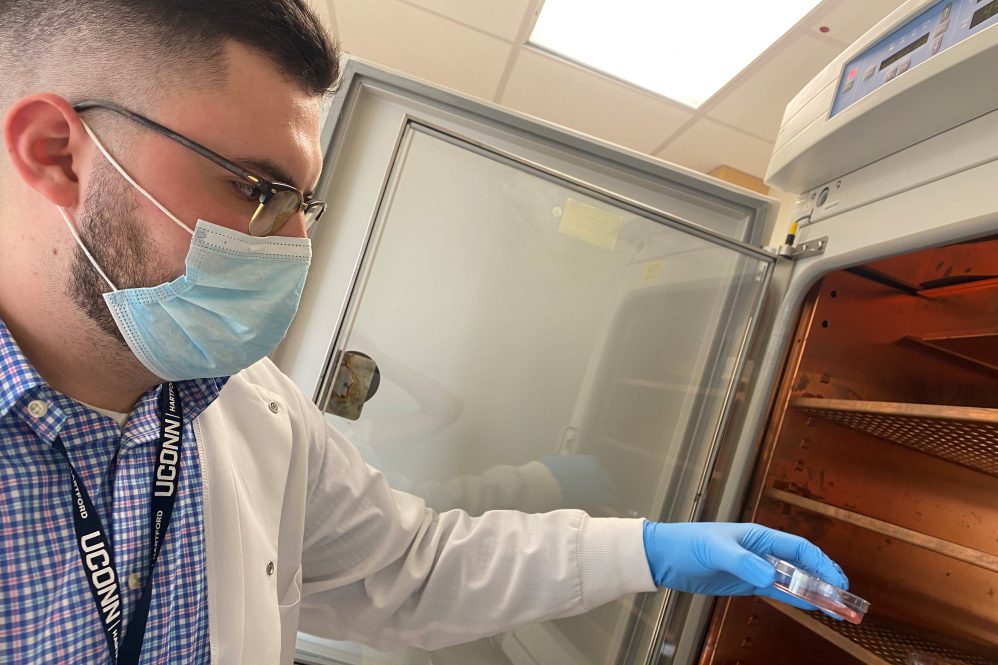Allied health sciences major Etem Beskovic ‘22 (CAHNR) is spending his summer researching how to improve a promising treatment for osteogenesis imperfecta (OI).
OI is a genetic disorder caused by a mutation in a gene that directs collagen production. People with OI have brittle bones and are prone to fractures. Some patients can suffer hundreds of fractures just from performing basic daily activities.
Scientists have been investigating how progenitor cells could dramatically improve the quality of life for people with OI. Progenitor cells are an intermediary between undifferentiated stem cells and adult cells. Progenitor cells can only differentiate into one kind of cell – in this case bone cells – whereas stem cells can become any cell type.
Researchers have looked at grafting these progenitor cells onto the bones of mice with OI. They found that engrafting healthy donor cells improved femur quality. Furthermore, the donor cells took over and the mice began producing normal collagen in that area providing long-term relief.
This is a promising treatment option as one of the only existing treatments for OI is implanting metal rods and plates to prevent constant fractures.
“If people are already having massively invasive surgeries, we want to see if healthy donor cell engraftment is another option,” Beskovic says.
However, these studies on progenitor cell engraftment used doses of radiation that would be lethal for humans.
Beskovic is working with Dr. Ivo Kalajzic, professor of reconstructive science and genetics and genome sciences, to investigate if an immunosuppressant could produce similar results.
They are using cyclosporine A, an immunosuppressant that is commonly used to prevent donor organ rejection. Suppressing the immune system is an important part of the engraftment process because it ensures the patient’s body will accept the transplant.
Beskovic will be looking to see if, first, the progenitor cells engraft successfully and, second, if they will mature into adult bone cells and begin producing healthy collagen.
Beskovic has been interested in research since taking a genetics class his sophomore year at UConn. After connecting with Kalajzic that summer, Beskovic has been working in his lab at UConn Health ever since.
Beskovic’s research experience gave him a crash course in working independently in a way unlike any classroom.
“The others in the lab teach you and guide you, but they do want you to make your own path,” Beskovic says.
After graduating from UConn, Beskovic intends to become a dentist, a career that he says will no doubt benefit from the lessons he’s learned in the lab.
“There are so many different things I’ve seen and learned about research that I’m going to carry on throughout my life,” Beskovic says.
UConn’s Office of Undergraduate Research each year provides Summer Undergraduate Research Fund (SURF) awards to support full-time undergraduate students in summer research or creative projects.
SURF awards are available to students in all majors at all UConn campuses. A faculty committee representing various schools and colleges reviews the students’ project proposals, and SURF award recipients are chosen through a competitive process. Each SURF award winner is supervised by a UConn faculty member.
Follow UConn CAHNR on social media



